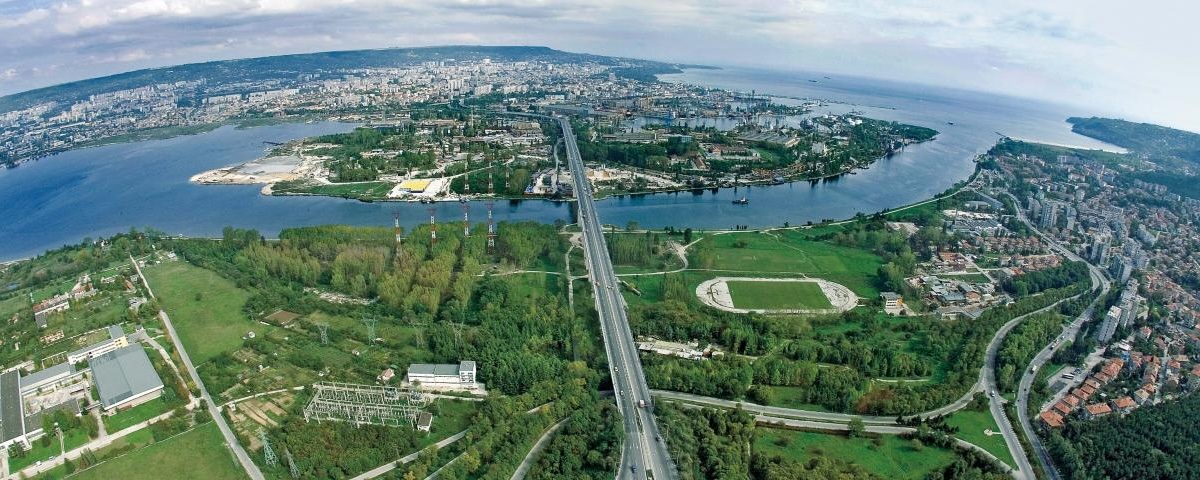Call for Papers
With the advancements in wireless communication systems like Fifth Generation (5G), beyond 5G (B5G) and the Sixth Generation (6G), new and unprecedent services will be available for users with nearly unlimited capacity. These services will be the core driver of the future digital transformation of our cities and communities. This will be accompanied by a ubiquities deployment of the Internet of Things (IoT) infrastructure and supported by computing capacity that will be available at the edge of the network and at the cloud. The computing infrastructure will be handling the processing of the data generated by the users and services. Such a complex and diverse system will require an efficient and sustainable applications running on the computing\Networking infrastructure and also a smart control and automation systems to integrate and manage its different components. Artificial Intelligence (AI) and its applications will play a significant role on the design, deployment, automation and management of the future services. This will include the applications that will be running on the edge and the cloud servers, the networking applications to handle the flow of data between the users and the computing system and the intelligent automation and management software operating on the system. The International Conference on Intelligent Computing, Networking and Services is aiming to provide an opportunity to present the state of the art research in the intersections of Computing, Networking and Services that is supported by Artificial Intelligence. Researchers from both the industry and academia are encouraged to submit their original research contributions in all major areas, which include, but not limited to:
- Track 1: Artificial Intelligence Fundamentals
- Artificial Intelligent Systems
- Artificial Intelligent Theory
- Artificial Intelligent applications in Computers and Communications
- Artificial Intelligent and Robotics Technologies
- Artificial Intelligent and cloud computing
- Artificial Intelligent for Economic paradigms and game theory
- Machine and Deep Learning of Knowledge
- Artificial Intelligent based Distributed Knowledge and Processing
- Artificial Intelligent for Human-Robot Interactions
- Track 2: Intelligent Internet of Things and Cyber-Physical Systems
- Intelligent IoT Applications and Services
- Intelligent security for the Internet of Things and cyber-physical systems
- Intelligent Internet of Things architectures and protocols
- Intelligent Cyber Physical Systems (CPS)
- Blockchain-based application in Intelligent Manufacturing: Industrial Internet of Things,
- Blockchain and Secure Critical Infrastructure with Industry 4.0
- Intelligent manufacture and management
- Consensus and mining algorithms suited for resource-limited IoTs
- Blockchain-based Controlled mobility and QoS
- Blockchain-based energy optimization techniques in WSN
- Blockchain-based Software defined networks
- Track 3: Edge Intelligence and Federated Learning
- Distributed and federated machine learning in edge computing
- Theory and Applications of Edge Intelligence
- Middleware and runtime systems for Edge Intelligence
- Programming models compliant with Edge Intelligence
- Scheduling and resource management for Edge Intelligence
- Data allocation and application placement strategies for Edge Intelligence
- Osmotic computing with edge continuum, Microservices and MicroData architectures
- ML/AI models and algorithms for load balancing
- Theory and Applications of federated learning
- Federated learning and privacy-preserving large-scale data analytics
- MLOps and ML pipelines at edge computing
- Transfer learning, interactive learning, and Reinforcement Learning for edge computing
- Modeling and simulation of EI and edge-to-cloud environments
- Security, privacy, trust, and provenance issues in edge computing
- Distributed consensus and blockchains at edge architecture
- Blockchain networking for Edge Computing Architecture
- Blockchain technology for Edge Computing Security
- Blockchain-based access controls for Edge-to-cloud continuum
- Blockchain-enabled solutions for Cloud and Edge/Fog IoT systems
- Forensic Data Analytics compliant with Edge Intelligence
- Track 4:Intelligent Networking in Beyond 5G (B5G) and 6G Wireless Communication
- Intelligent Networking in Beyond 5G/6G Network Architectures
- large-scale Internet of Things in B5G/6G
- Vehicular networks in B5G/6G
- Blockchain with lightweight computation
- Service and applications for vehicular clouds in B5G/6G
- Future internet architectures for B5G/6G
- Intelligent networking services
- Emerging networks in B5G/6G
- Byzantine-tolerant FL
- Churn-tolerant FL
- FL for NGN and 6G
- B5G/6G based IoT healthcare systems
- Track 5: Intelligent Big Data Management and Processing
- Intelligent Data Fusion
- Intelligent Analytics and Data mining
- Intelligent Distributed data management
- Distributed transaction for blockchain
- Intelligent Data Science and Data Engineering
- Protocols for management and processing of data
- Track 6: Intelligent Security and Privacy
- Authentication and authorization
- Applications of blockchain technologies in digital forensic
- Privacy technologies
- Blockchain-based threat intelligence and threat analytics techniques
- Blockchain-based open-source tools
- Forensics readiness of blockchain technologies
- Blockchain Attacks on Existing Systems
- Blockchain Consensus Algorithms
- Blockchain-based Intrusion Detection/Prevention
- Security and Privacy in Blockchain and Critical Infrastructure
- Attacks on Blockchain and Critical Infrastructure
- Blockchain and Secure Critical Infrastructure with Smart Grid
- Track 7: Blockchain Research & Applications for Intelligent Networks and Services
- State-of-the-art of the Blockchain technology and cybersecurity
- Blockchain-based security solutions of smart cities infrastructures
- Blockchain in connected and autonomous vehicles (CAV) and ITS)
- Blockchain Technologies and Methodologies
- Recent development and emerging trends Blockchain
- New models, practical solutions and technological advances related to Blockchain
- Theory of Blockchain in Cybersecurity
- Applications of blockchain technologies in computer & hardware security
- Implementation challenges facing blockchain technologies
- Blockchain in social networking
- Performance metric design, modeling and evaluation of blockchain systems
- Network and computing optimization in blockchains
- Experimental prototyping and testbeds for blockchains
- Blockchain networking for Edge Computing Architecture
- Blockchain technology for Edge Computing Security
- Blockchain-based access controls for Edge-to-cloud continuum
- Blockchain-enabled solutions for Cloud and Edge/Fog IoT systems
- Forensic Data Analytics compliant with Edge Intelligence
Call for Workshop Proposals
ICCNS will host a series of workshops and is also inviting new workshop proposals. The purpose of the workshops is to emphasize current and emerging topics of particular interest to the community.
Proposal Format
Each workshop proposal must include (maximum 4 pages, in PDF format):
- Title of the workshop.
- Workshop organizers (name, affiliation and short biography).
- Scope and topics of the workshop.
- Rationale:
- Why the workshop is related to ICCNS.
- Why the topic is important.
- Why the workshop may attract a significant number of attendees.
- Workshop details:
- A draft call for papers (including organizers, program committee, and steering committee if any). Organizers are expected to be fully committed and physically present at the workshop.
- Workshop tentative schedule (number of expected papers, duration full/half day, format talks/posters, etc.). We encourage full-day events that demonstrate the interest of the community in the proposed topic and guarantee the commitment of the organizers. Half-day proposals are also welcome but expected to provide a rationale for the proposed duration.
- Names of potential participants and invited speakers (if any).
- Workshop history: if there are past workshops, the history of the workshop.
- Proposals and any other enquiries should be sent to info@iccns-conference.org



